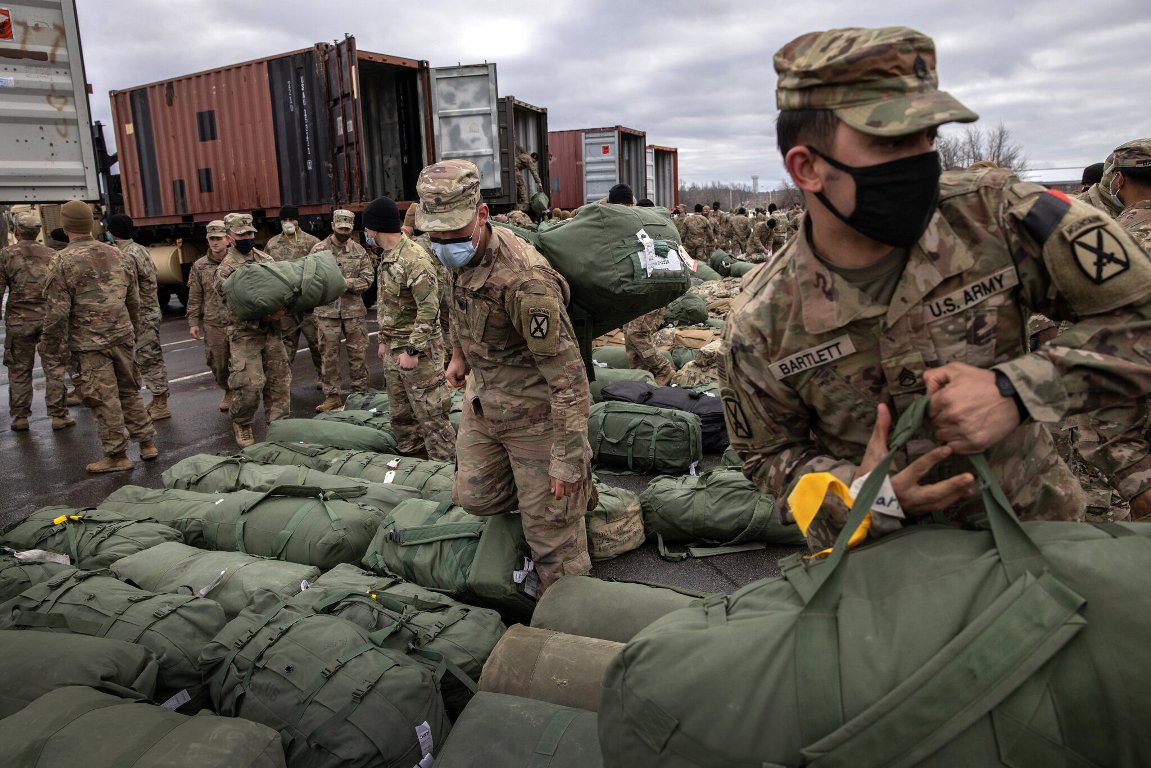AhlulBayt News Agency (ABNA): With the complete withdrawal of the US troops from Afghanistan in addition to allowing the Taliban to capture many cities across the country has been of significance for the foreign actors. Historically, developments in Afghanistan have been of paramount importance to many of its neighbors. At times, the country has been the focus of superpowers at the international level, which can be seen in the Soviet invasion of the country in 1987 and the US invasion in 2001.
In addition to the global powers, the developments in Afghanistan are extremely important for its neighbors Pakistan, Iran, India, Turkmenistan, Uzbekistan, Tajikistan and even China. Now the question is that how can the US pullout from Afghanistan leave an influence on the Central Asian countries and change the security and political equations in this region?
Fear of terrorism in Central Asia
Undoubtedly, the most important concern of Central Asian countries now is about the withdrawal of American troops from Afghanistan is about the influence of Takfiri terrorism in their region. With the withdrawal, evidence shows that takfiri and extremist groups, including al-Qaeda and ISIS, will dominate Afghanistan, and the possibility of an Islamist state like the one desired by ISIS could be the most significant threat to regional nations.
Indeed, the main worry of Central Asian countries is the resurgence of terrorism in Afghanistan and the spread of extremism to country's northern neighbors. These countries are deeply concerned that with the withdrawal of foreign forces, the Taliban and other militant groups along with the repressed drug trafficking groups will be revived. The regional countries are the most vulnerable to the threats posed by these two sources of danger. The Islamic countries in Central Asia have a big potential for growth of extremism and due to the cultural commonalities with Afghanistan and also existence of grounds for radicalism, the possibility of penetration of terrorism into them from Afghanistan is high.
The US efforts to station its forces in Central Asia
On the 20th anniversary of the invasion of Afghanistan, pieces of evidence show that Washington has embarked on boosting its military bases in Central Asia. A clear sign to that is the visit to Uzbekistan and Tajikistan of the US Special Representative to Afghanistan Zalmay Khalilzad in early May.
In his May 2 visit to Tashkent, Khalilzad met with the Uzbek Foreign Minister Abdulaziz Kamilov. On May 3, he flew to Kabul, and on May 4 to Dushanbe, meeting the Tajik President Emomali Rahmon. The visits fuel the speculations that Washington has begun to adopt the strategy of establishing military bases in Central Asia after pulling out of Afghanistan.
Even some recent reports talked about the US program to construct military facilities worth of $240 million in Central Asia, including in Turkmenistan. Also, in recent days, Afghanistan media reports suggested Pentagon is building a base in Shaluzan and Terminal on the Afghanistan-Pakistan border in the tribal region of Karakoram of Pakistan.
Overall, it can be said that in the years since the end of the Cold War (1991), the US has always used security and the fight against terrorism as a tool for geopolitical influence and pursuit of its interests. In the last two decades, under the pretext of confronting terrorist groups and establishing stability in Afghanistan, the US has built a large military presence in this country, while the goal was not achieved. But in the new conditions, the Biden administration plans to follow the old policy that is expanding military presence on ruse of fight against terrorism. The genuine reason for pullout from Afghanistan and presence in Central Asia is mobilization of the power to curb its core rivals China and Russia.
Key US strategy in the new conditions is the so-called 'pivot to East" approach with a special focus on China. The Americans believe that Beijing with its super investments on the "Belt and Road Initiative", a large part of which covers Central Asia, plans to be a new global trade order determiner, leaving Washington behind. The Americans think that in their way to block the realization of the Chinese economic and political influence they need to set up new bases in Central Asia.
On the other side, Russia, another major actor, is growing concerned about the transforming withdrawal of forces from Afghanistan into relocation of them into Central Asia. Even more, many political observers view the withdrawal from Afghanistan as a pre-determined scenario for building a presence in Central Asia and developing a role in regional equations. The basis of this theory is that by withdrawing, the US has paved the way for the Taliban to run rampant in Afghanistan. This comes while the insurgent group openly violates the Doha peace agreement and is advancing to capture the whole Afghanistan.
/129

